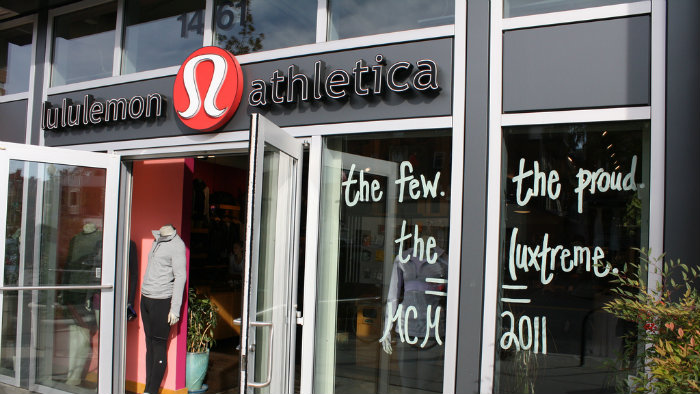Lululemon Athletica (NASDAQ:LULU) was one of the best-performing Canadian stocks last year. Owing to the popularity of its athleisure products and retail outlets, the stock shot up 75% in 2018. And the fundamentals would seem to justify the gains: in Q3 2018, the company’s revenue jumped 21%, while diluted EPS increased 65% and same-store sales climbed 17%. In terms of earnings growth, the company bested even Canada Goose Holdings (TSX:GOOS)(NYSE:GOOS), itself a fast-growing juggernaut with an astonishing 45% return on equity.
But now, Lululemon is facing a challenger. On December 20, Nike (NYSE:NKE) announced that it would be expanding its presence in the yoga market with a line of athleisure wear. The new lineup will include men’s items, a fast-growing product category that Lululemon had been counting on for new customers. If Nike captures significant market share, it could put a dent in Lululemon’s earnings growth. But will it? First let’s compare the company’s business model and compare it to Nike’s.
Different business models
Lululemon and Nike are both clothing retailers. However, Lululemon tends to focus more on its own stores, whereas most of Nike’s sales come from third-party retailers who stock their products. Nike does have its own Nike Factory stores, which actually outnumber Lululemon’s locations by about 3:1 (according to data from Statista), but remember that Nike is a much bigger company than Lululemon. As a percentage of total revenue, Lululemon’s direct-to-consumer sales contribute more than Nike’s.
The two companies also have different branding strategies. Lululemon’s brand is based around athleisure and style, Nike’s is heavily focused on celebrity endorsements. The latter’s approach may hurt it in the yoga market, which isn’t as “star-focused” as athletic footwear.
Lululemon’s “moat”
Lululemon benefits from a certain “economic moat” owing to its name being intimately associated with yoga wear. The word Lululemon immediately calls to mind yoga pants and related athleisure products, similar to Nike’s association with footwear.
Once again, the advantage here seems to be on Lululemon’s side. But that doesn’t mean that there isn’t room for Nike to compete. One possibility is competing on price points. Lululemon products tend to be fairly expensive; some of the yoga pants on their site reach as high as $138, while hoodies approach $200. Nike isn’t known for being cheap either, but it could carve out a niche as an athleisure company that’s just a little more affordable than the alternative. With that said, Nike’s yoga pants average about $100, so any discount relative to Lululemon is small and probably not a big differentiator.
Canada Goose: an alternative for jittery Lululemon fans
Overall, I don’t think Nike’s challenge to Lululemon is a huge concern. Lululemon has enormous “share of mind” in its niche, and that should power strong sales for the foreseeable future.
But if you’re worried about the company losing market share, you could always consider Canada Goose as an alternative. Like Lululemon, Canada Goose is a Canadian clothing retailer with lightning-fast earnings growth and high returns on equity. Unlike Lululemon, it doesn’t have a major competitor breathing down its throat, so its market share is safer. Canada Goose itself has some risk factors stemming from political tensions with China, but should those tensions blow over, the company will remain a virtual money tree pumping out cash quarter after quarter.








